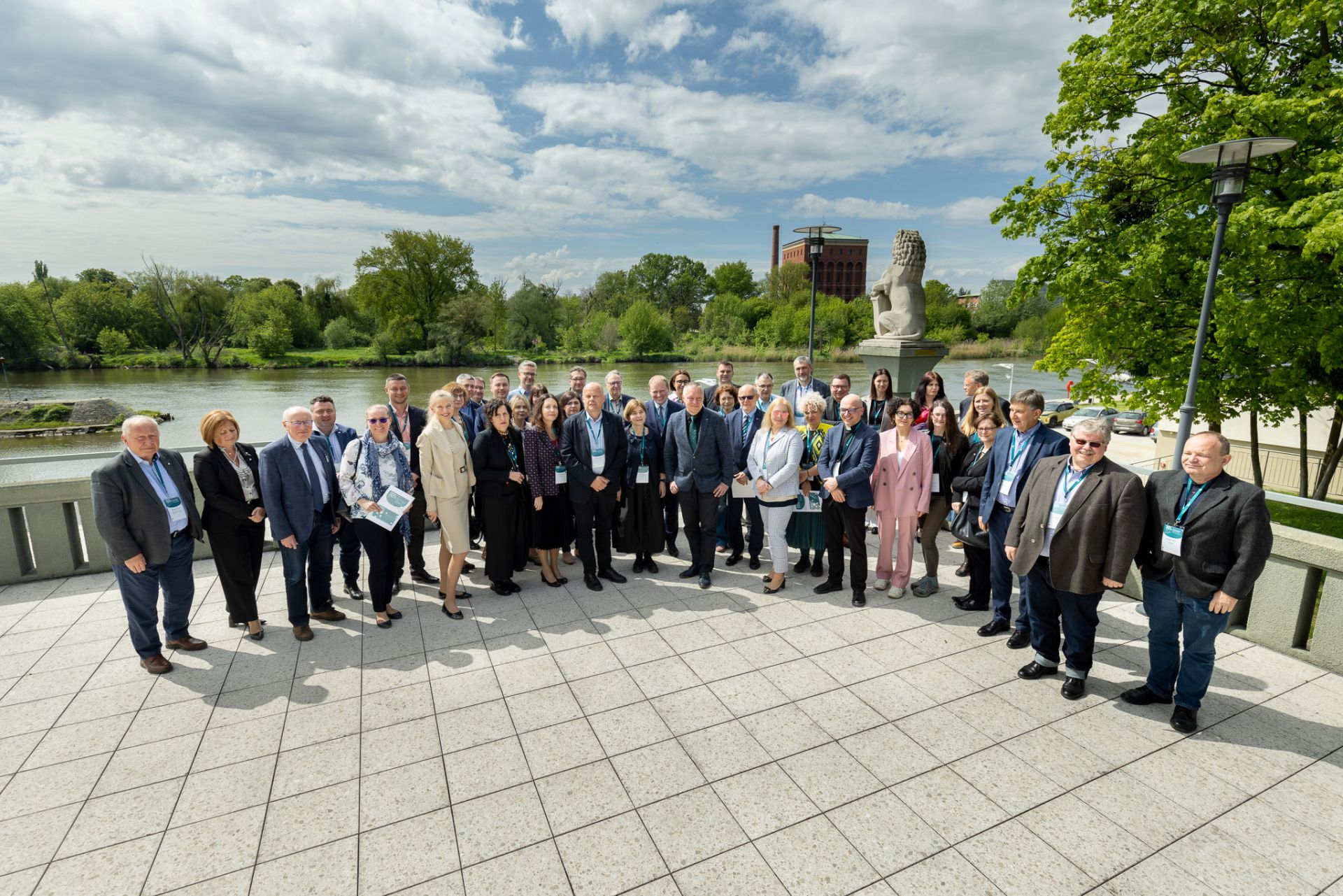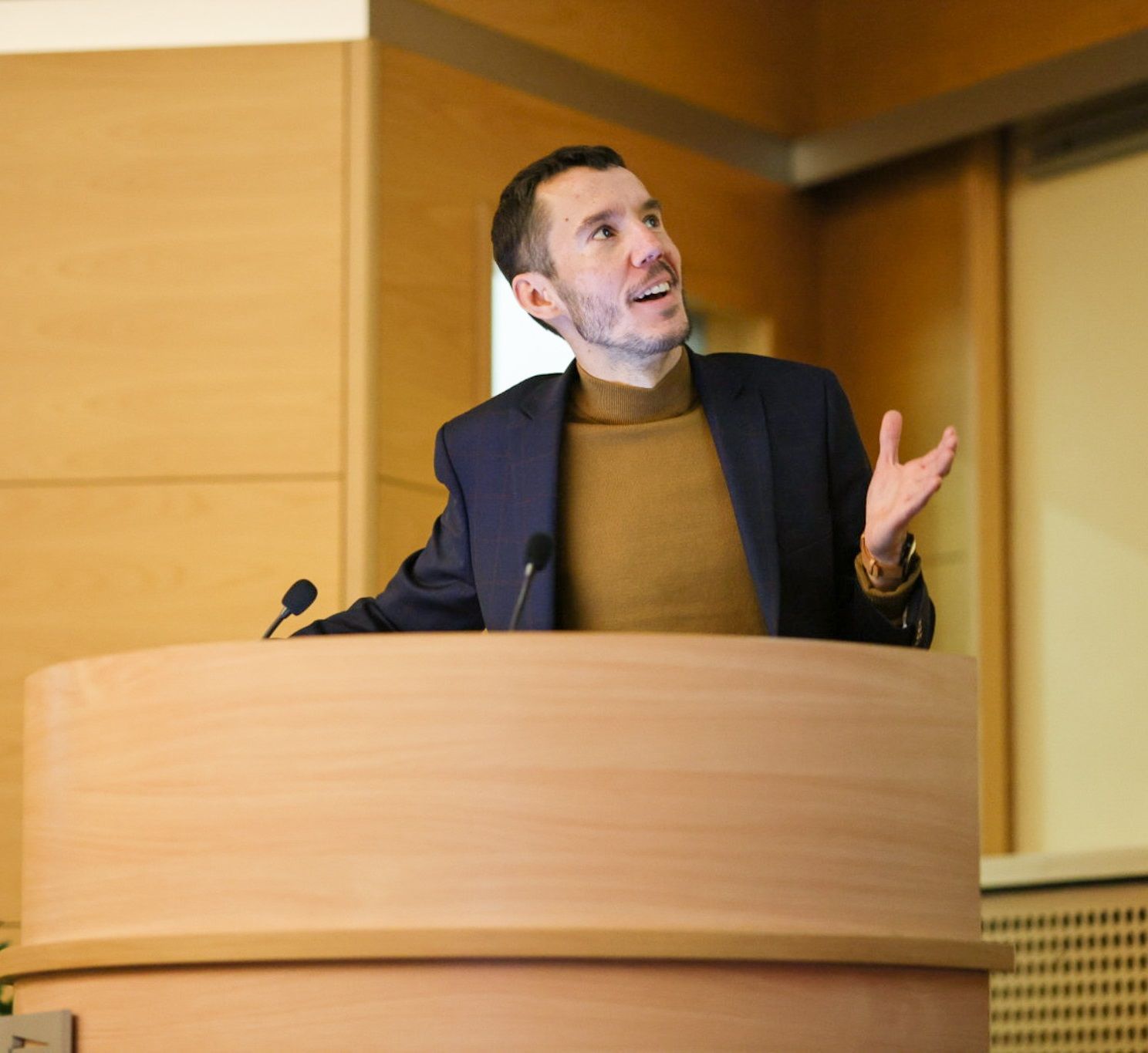The nineth edition of the NCN Days is now over. The two May days were filled with inspiring lectures, vivid discussions, and interesting workshops.
Wrocław University of Science and Technology Congress Centre, fot. Łukasz Bera for NCN
The NCN Days are held on an annual basis, each time in a different academic city in Poland. This spring, the representatives of the NCN Council and Office visited Wrocław at the invitation of the Wrocław University of Science and Technology and thanks to the cooperation with the College of Vice-Rectors for Science of Wrocław and Opole (KRUWiO). The purpose of the event is to present the operation of the National Science Centre to the local researchers and exchange experiences and views on the NCN’s operation and portfolio.
“Wrocław is a strong academic centre, and our universities and institutions have confirmed high quality research, even during the last evaluation. The NCN Days allow us to present the achievements of outstanding researchers who have successfully applied for NCN funding; on the other hand, researchers and officers supporting the application procedure will be able to gain knowledge and improve their competences in this area," said Prof. Andrzej Ożyhar, Vice-Rector for Science at the University of Wrocław.
Dialogue with the Academic Environment
“We are here for you! This is a unique opportunity to discuss your needs and problems with the call regulations, grant implementation and our operation at large,” said Prof. Robert Hasterok, President of the NCN Council. “We want our call portfolio to address the real needs of the scientific community. This is why we will listen to any comments and suggestions you may have,” he added.
The local scientific community could express their views at the Council meeting with the participation of the heads of the local research institutions and at the “We Can Do It” meeting. The main purpose of the meetings was to discuss the grant system and challenges related to the current state of science and research work in Poland. The topics for the discussions collected via, inter alia, an application form included project budgeting, post-doc employment and scholarships allocation, evaluation of interdisciplinary projects and open access to research data.
 Participants of the meeting of the NCN Council with the participation of the management and representatives of the scientific community of the region, fot. Łukasz Bera for NCN
Another important point of discussions in Wrocław was underfunding of the National Science Centre, an institution which has supported basic research in the Polish research institutions for the last 12 years. Based on the European Research Council, the National Science Centre has maintained the highest standards of peer-review and efficiently fostered Polish researchers by allocating over one billion PLN to the best research projects each year. Between 2015 and 2018, the NCN budget increased by 40%. For the next five years, the budget increased by only 13%. In 2023, the budget is the same as in 2022.
Participants of the meeting of the NCN Council with the participation of the management and representatives of the scientific community of the region, fot. Łukasz Bera for NCN
Another important point of discussions in Wrocław was underfunding of the National Science Centre, an institution which has supported basic research in the Polish research institutions for the last 12 years. Based on the European Research Council, the National Science Centre has maintained the highest standards of peer-review and efficiently fostered Polish researchers by allocating over one billion PLN to the best research projects each year. Between 2015 and 2018, the NCN budget increased by 40%. For the next five years, the budget increased by only 13%. In 2023, the budget is the same as in 2022.
“At this point, out budget for research is not expanding to meet the growing needs: project costs, researchers’ needs and inflation. In order to continue our mission, it is imperative for our grant budget to grow, something we have been urging for a very long time,” says Zbigniew Błocki, acting Director of the National Science.
From its very beginning, the National Science has been apolitical, transparent, prioritised early-stage researchers, and promoted scientific excellence and internationalisation of research. Over 28,000 projects have been funded so far, with a value of nearly 14.4 billion PLN.
INFORMATION ON LOWER SILESIA AND OPOLE
Between 2011 and 2022, research institutions from the Lower Silesian Voivodeship and Opole Voivodeship were awarded a total of 2,603 NCN grants, the majority of which were given in OPUS (924), PRELUDIUM (639) and MINIATURA (351). In 2020, the two Voivodeships received the largest number of grants (1,208).
Over the last 11 years, research institutions from the Lower Silesia had a success rate of 23% and from the Opole Region, 11%. In 2017, the two Voivodeships had the highest success rates: 30% (Lower Silesian Voivodeship) and 29% (Opole Voivodeship).
The largest number of funding proposals are submitted by the academics from the University of Wrocław (3,422 proposals), followed by the researchers from the Wrocław University of Science and Technology (2,896 proposals). Most grants go to the University of Wrocław (981 grants for over 486 mln PLN), whereas the Wrocław University of Science and Technology has received 698 grants with the value of over 386.6 mln PLN.
 dr hab. Grzegorz Soboń, prof. PWr, fot. Łukasz Bera for NCN
Why and how to do good science?
dr hab. Grzegorz Soboń, prof. PWr, fot. Łukasz Bera for NCN
Why and how to do good science?
The event included presentations by the Wrocław-based NCN call winners who have achieved significant research results due to the NCN support. Prof. Grzegorz Soboń from the Faculty of Electronics, Photonics and Microsystems at the Wrocław University of Science and Technology, who studies laser technology, talked about finding one’s research path, choices that can take us to (or away from) our goals, and casual lift conversations or seminar participations that can change one’s career.
The NCN Days also comprise a very practical part. Administrative staff of the research institutions discussed the proposal processing procedures. Participants of the proposal evaluation workshops played the part of experts who evaluate proposals in NCN calls. Before the meeting, they were requested to review two real proposals drafted by the experts participating in the workshops who agreed that they be used for training purposes. Furthermore, a mock expert team meeting was held during the workshop.
“Workshop participants who draft reviews will be able to see the proposal development process from a different perspective, from an expert’s perspective. One gets the best insight into one’s academic work when evaluating somebody else’s funding proposal,” says Ewelina Szymańska-Skolimowska, NCN Coordinator.
During a meeting on open access to research data held at the end of the NCN Days, researchers found out about NCN’s Open Access Policy, publication routes compliant with the Policy, significance of open access and open access in NCN proposals.
The first NCN Days in 2013 were held in the Upper Silesia. Then, we have visited other academic cities, such as Lublin, Szczecin, Olsztyn, Kielce, Gdansk, Lodz, and in 2022, after a pandemic break, Bialystok. Next year, Bydgoszcz will host the NCN Days.




















